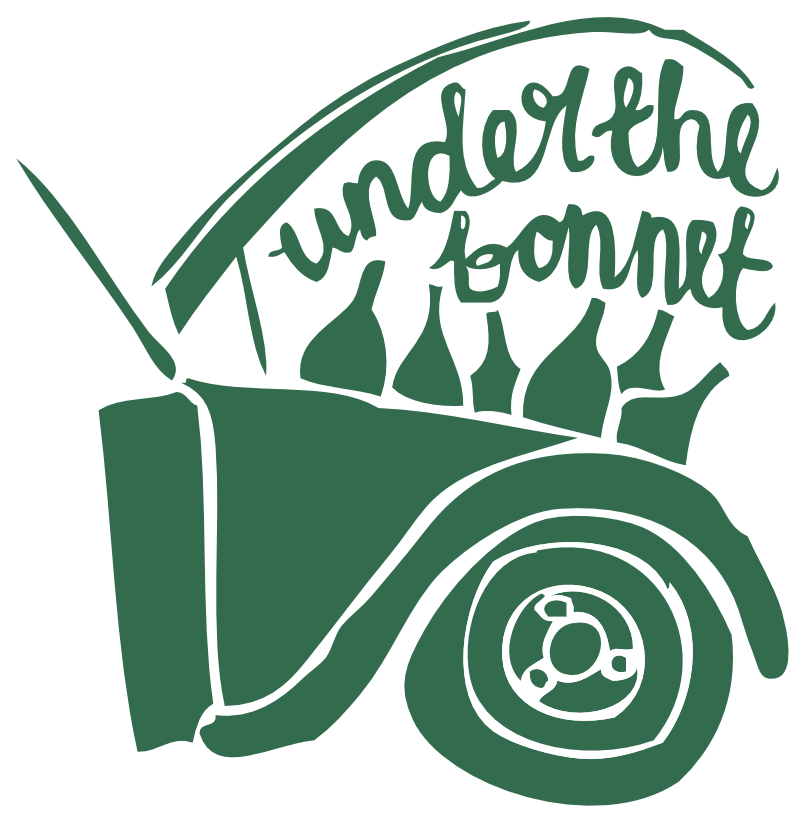Château Barouillet
Winemaker
Vincent Alexis
TYPE OF AGRICULTURE
Organic
VINEYARD AREA
45 ha
Country, Region, Subregion
France, Bergerac & Monbazillac in Pomport
Vincent is an eighth-generation winemaker; joining his father in 2010, when he started the organic "project" at Barouillet - bottling their own wines rather than selling the grapes for bulk-blending. Organic conversion started with 6 hectares and since 2013 the entire estate has been organic.
Forty percent of their production is sweet, with the rest a mix of red and dry white. They have 14 grape varieties planted and Vincent intends to keep re-planting old varieties until he is the first in the area to have all traditional permitted varieties.
The estate is split over three areas: Pomport, where the cellar is located – this is one of the highest plots in the area at ~180m; Pechament – 15km away, the top red "cru" of Bergerac and the only all-red appellation, where they have 6 hectares of Merlot, Cabernet France and Cabernet Sauvignon; and 12 hectares at Mescoules, 4km away from the cellar.
In Pomport and Mescoules there is 10-40cm of clay topsoil and then limestone. Clay is good for hot weather due to water retention, and acidity in the wines is helped by the limestone. In Bergerac you need to work hard to keep acidity in the wines due to the warm, dry climate.
In Pecharment soil is a mix of red clay, iron and silex. The flint rocks in the soil retain heat which helps the maturation of the grapes. The area is cooler than the rest of Bergerac and has more rain, therefore the harvest is later and the fruit is riper.
FOR ANY UK WHOLESALE AND STOCK ENQUIRIES, PLEASE CONTACT HELLO@WINESUTB.COM
Wines
A Chat with Vincent (May ‘19):
Has becoming a winemaker always been a goal for you?
No, not always. After taking the general baccalaureate, I didn't know what to do. I was more oriented in design or graphics but I didn't have very good grades so I was only left with my 3rd choice, which was in wine trade. Then as the meetings went on, I became passionate.
You decided to push the biological approach a little bit further by working according to the lunar calendar in both vines and cellar. Can you tell us more?
Organic is the basis of the work and we wanted to push the approach further. In the vineyard, setting yourself on the lunar calendar is just an organization and honestly I find it silly not to do it because it's really simple, it's just a matter of organizing yourself and planning ahead. For example, if the lunar calendar says to work but it rains ropes, we will abstain. The ideal being to have both but the 2 are not always united.
Then we try to transpose it back to the cellar and winemaking. It should be noted that in organic farming, the law allows many people to enter ( we are entitled to a lot of crap!), we only allow ourselves the addition of SO2 and it must now be 7 years since I have not released a wine weighing more than 25 grams per hectolitre.
We try to reduce the number of incoming visitors as much as possible so as not to poison those who already consume our wines, and then to be as close as possible to the terroir and make unique and honest wines.
Can you tell us more about your black raven Larcin and why you have named your cuvee after him?Larcen is a crow who arrived from a neighbour who had picked her up injured little girl so he took care of her and the day he set her free, the crow stayed, so he started to get used to the man and then she came to my house because she quickly understood that it was cool at Château Barouillet, there are still people at the estate, we still have animals and now she lives with us, she can sleep at home or with the dogs if it is cold. Like magpies, crows steal a lot of everything that is brilliant: tools, keys, tickets or computer keys for example. A Larcen means a minor robbery and then it suited him well. This crow has almost become the emblem of the estate, the mascot, hence the cuvée with its name.














Using Semillon once destined for his families sweet Monbazillac production, Vincent has tapped into a better way to channel the grape’s hidden energies: zero sulphur pet nat!